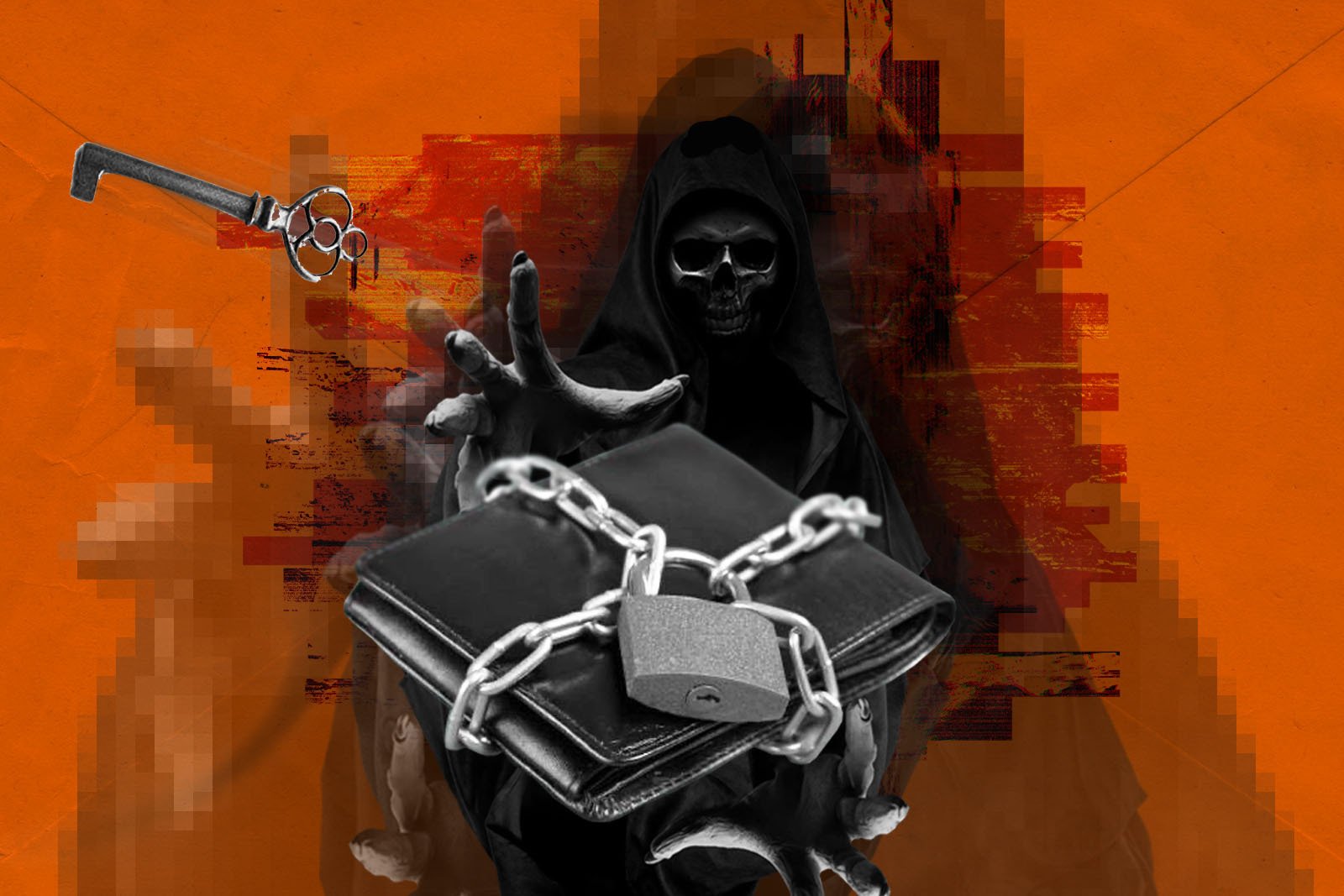
Dead wallets are inaccessible blockchain accounts doomed to collect virtual dust for eternity. Within a little more than a decade since the first Bitcoin (BTC) was minted, almost 20% of coins are now unavailable.
They are trapped in wallets that can’t be unlocked and, thus, lost forever. These dead bitcoins will remain locked in crypto purgatory forever.
Or will they?
Sponsored
Even in the darkest times, magic can happen. Wallets can rise from the dead to interact with the living world. Everything is possible when owners have prepared well for the worst.
Table of Contents
What Is a Dead Wallet?
Dead crypto wallets are cryptocurrency addresses that have been inactive for multiple years. They always hold funds but have neither incoming nor outgoing transactions, and most of them never will have.
Reasons for such inactivity vary. Sometimes, owners are long-term holders who patiently wait five or more years for the best time to sell. Some have simply lost private keys and can no longer access the funds.
Sponsored
Sometimes, dead wallets belong to people who have passed away, holding millions of USD in BTC, Ethereum (ETH), and other digital assets like NFTs that can’t be touched. We can find these wallets on blockchain explorers like Etherscan, but without a wallet’s private keys, it’s completely unusable.
This is not to be confused with a burn address or null addresses, which are deliberately designed to be inaccessible and serve as the trash cans of the blockchain.
Can Anyone Access a Wallet After Its Owner Dies?
Cryptocurrency wallets use cryptography to secure digital assets. They contain an unchangeable password called a private key.
The private key is generated with the wallet address at the moment of creation. It looks like a string of random characters and is the only way to confirm ownership and open the wallet.
Because of encryption, nobody except the owner can access locked funds. This is a huge advantage of the mechanism, but only so long as the cryptocurrency owner isn’t dead.
If they haven’t left a private key somewhere, the coins will stay locked in that wallet forever.
How Can Crypto Wallet Have Life After the Owner’s Death?
Lost and locked crypto can yet be extracted back into the world of the living, especially if the owner prepared for them to be accessible after their death.
Here are a few recommendations on how that can be done.
Write Private Keys Down and Hide Them
All survivalists know that it’s mandatory to be prepared for doomsday so that when bad things happen, they will be ready. Before you leave this mortal plain, leave a trail of breadcrumbs for your loved ones to follow.
You never know what may happen to you or when. That’s why, to make your crypto holdings accessible to loved ones should the worst happen, it’s best to make your crypto wallet available after you die. They’ll need to create a MetaMask account and import your old private keys or seed phrases.
Whether you hold your coins on an exchange or in a non-custodial wallet, write down the logins, passwords, and private keys. Hide them safely offline so they can not be leaked.
Find a way to hint to your loved ones about where the data is hidden. Otherwise, they might never know that you left them a digital treasure.
Add Your Crypto to Your Will
Even if your family is unaware of your cryptocurrency holdings, putting digital assets into your will is useful. This lets your dearest ones know about your secret wealth and ensures that the coins will not be lost forever after you die.
If you have left a will, the beneficiaries will not have to go through a probate process, in which the court distributes your wealth according to respective inheritance laws. However, they will have to pay inheritance taxes, which can be expensive.
Don’t forget that wills become public documents to some extent. This means that it is risky and unwise to disclose private keys there.
Use a Crypto Exchange
Some exchanges in the crypto space, like Binance and Coinbase, have dedicated policies around the posthumous transfer of assets.
Check with your favorite platform what their policy entails and designate a receiving address for your beneficiaries to ensure your digital wealth isn’t lost forever.
Decentralized Smart Contracts
Blockchain technology never fails to amaze us. For a truly decentralized asset transfer solution, smart contracts can automatically manage your wallet’s approvals and send your crypto assets to your loved ones if you don’t touch them for a designated time.
Other solutions include using multi-signature contracts to give your heirs access to your wallets if you can no longer.
Use a Post-Mortem Trust
Some crypto holders set up a special trust in their will to bypass inheritance taxes, which would contain cryptocurrencies and become active after the owner’s death.
Trusts are a common way to preserve family wealth for future generations. They are legal entities that manage personal or corporate assets for beneficiaries. Although a trustee manages it, be it a person or company, some trust creators can also manage their trusts personally.
In addition to a testament, trusts only document the existence of cryptocurrency holdings and where to look for them.
To ensure the highest level of safety, it’s best to keep direct access instructions on a separate document secured in a safe location. It would be a shame if your seed phrase were on social media.
Use Crypto Vaults
The growing number of crypto millionaires has created a new industry of specialized vaults for digital assets.
Crypto vaults are storage solutions that offer extra layers of security for cryptocurrency wallets. Typically, they are used for their ability to halt the immediate withdrawal processes. Transaction confirmation might take up to a few days, allowing owners to cancel the transfer.
Some companies offer cold storage private key custody on encrypted servers remotely accessible by owners 24/7. Some even store private keys on drives, hidden in military-grade bunkers deep beneath the Alps.
Besides that, all crypto vault service providers apply multi-step authentication, making it more secure and difficult to hack.
On the Flipside
- Cryptocurrencies are still largely unregulated assets. The majority of countries worldwide lack laws that govern the inheritance of digital currencies.
- Local laws, however, name inheritance taxes that beneficiaries must pay. The amount of tax depends on the value of the wealth inherited. As cryptocurrencies are highly volatile assets, there is always a risk that they may drop in price after they are valued for inheritance taxes.
Why This Matters
It is impossible to know what the future holds for us. Preparing for the worst possible scenario helps to ensure that our accumulated coins will not be stuck in a dead wallet and lost forever.
FAQs
Without access to private keys, a dead wallet will remain inaccessible and locked until the end of the blockchain’s existence. All digital assets stored within cannot be used or transferred.
If you have backed up your private keys or seed phrases, you can import them into crypto wallet software like Metamask to regain control of the wallet and recover your lost crypto.
Chainalysis suggests that 20% of all Bitcoin, or around 4.2M BTC, has been lost forever.
